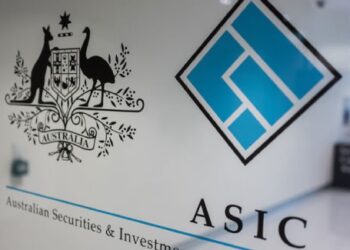The ATO had recently flagged that it is seeking feedback on moving to a single transfer balance cap events-based reporting framework for all self-managed superannuation funds (SMSFs).
The ATO is looking to streamline transfer balance cap events-based reporting arrangements so that the same reporting time frame applies to all SMSFs, which will deliver better outcomes and provide more timely transfer balance account reporting.
In a recent update, Heffron managing director Meg Heffron said that having a single set of deadlines for all SMSFs makes perfect sense.
“Remember that right now, most SMSFs are ‘quarterly reporters’. Only those where all members had total super balances of less than $1 million at the 30 June immediately before their first reporting event are ‘annual reporters’,” she said.
“Even at the time this special concession was made, it was talked about as a stepping stone to help SMSFs adjust to a new reporting regime. So while no-one likes reporting that is brought forward, I suggest we all just get on board with this.
“But I would like the ATO to also think a little more imaginatively about the whole issue of reporting while they’re at it.”
Specifically, Ms Heffron noted that new changes could explore what it really means to report an “accurate” value for the commencement of a pension.
“For transfer balance account purposes, the value to be reported when a pension starts is the ‘value on the starting day of the superannuation interest that supports the superannuation income stream’,” she noted.
“That value is defined as the total lump sum that could be paid from the interest at the time. In a public offer fund, that figure is very transparent. And because it’s quoted precisely in dollars and cents, we assume it’s incredibly accurate. But of course it’s not. Just like an SMSF, there’s no way a public offer fund values absolutely every asset and liability every day. Estimates are made, supported by strong process and logic, but they are estimates just the same.”
The big difference between a public offer fund and an SMSF is that in the public offer world, no-one goes back over the books and adjusts the amount reported for the commencement of the pension once all the tax provisions are correctly tallied, according to Ms Heffron.
“In other words, no-one ever updates the estimate. If every single member of a public offer fund commenced a pension on 1 July 2021, I’ll bet the total amounts reported across the fund as a whole would not conveniently add up (exactly) to the value of the fund shown on its 30 June 2021 audited accounts,” Ms Heffron explained.
“And that makes perfect sense! What is the use of doing that months after the event? And the estimate was actually the ‘correct’ number in the first place. If an individual member had asked for their full balance as a lump sum, it’s the estimate that would have been paid, not some notional amount calculated retrospectively once all the things that were unknown at that date are known for sure.”
As SMSFs are held to a higher standard, Ms Heffron pondered why there is always an assumption that there is a dollar perfect correct amount that represents the member’s pension balance on the date it starts and why is there insistence on going back and exactly matching TBAR figures with the audited accounts?
“If we ran SMSFs like public offer funds, pension commencement amounts would always be estimates. And these estimates would never be updated. And that would make quarterly reporting a breeze,” Ms Heffron explained.
“So rather than getting up in arms about potential changes to the frequency of reporting, let’s have this discussion. Let’s legitimise (with guidelines if really necessary) the use of well-supported estimates as the real figures for reporting, just like a public fund would.
“I wonder if the ATO is even quite comfortable with that, and it’s those of us on the industry side of the fence that are hesitating. In their guidance on TBA reporting, the ATO even says, ‘If the trustee has used a reasonable estimate and the value of that income stream significantly changes, the trustee may correct the value initially reported to us’.
“Perhaps we should place more emphasis on the word ‘significantly’ and only adjust the reporting after the fact if it really is a material change. That’s something it would be good to get on the table.”



Or the ATO could consider that quarterly reporting for a SMSF is just not necessary. It is an unnecessary administrative burden on trustees and accountants alike. I’m all for change where there is an actual positive benefit but change that negatively affects people for no benefit is not ok.
Parliament could abolish them. It is a ridiculous and unnecessary hassle. And the ATo might actually match up deductions claimed with tax returns without bothering with ticking a box in small print on a tax return.
Tax agents need signatures from the members/trustees of an SMSF to protect the agents from being accused of lodging false information. If the SMSF members find that inconvenient, then perhaps they should not be running an SMSF. The tax concessions for an SMSF have a price – compliance with rules.
As a tax agent, my defence is that the client confirmed what was being lodged.
Meg is spot on! We need a solution to the need to retrospectively fix pension starting balances in SMSFs.
The ATO should remove the requirement for tax agent to have Trustees to sign a lodgement declaration for TBAR events it is a ridiculous position. This is the biggest hassle with TBAR and is totally unnecessary. I imagine many firms simply ignore this requirement.
Why should the requirement be removed? They are ‘self managed’ funds after all. I would bet that most retirees don’t even know what a TBAR is. They might know about the $1.6 (now $1.7)M cap, but I suspect that they don’t know the reporting requirements around it. It’s just another service that agents provide, and if the client never sees or signs it, from their point of view it doesn’t exist.
I agree that many firms probably do ignore this, and its the same with activity statements lodged via the portals. Its a compliance area that the ATO probably should take more notice of but clearly don’t have the resources to do so. You wouldn’t want to remove the lodgement declarations for Income Tax Returns so cant see why it would be any different.